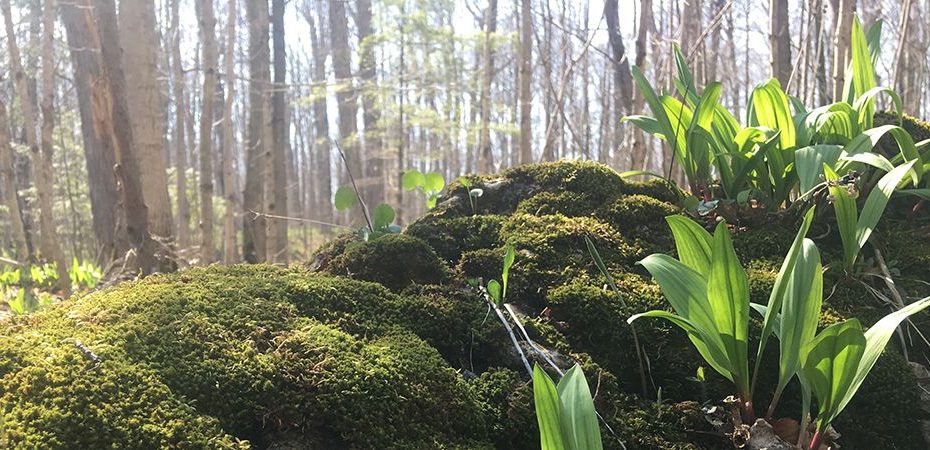In 2015, Ontario Nature supporter Dianne Fahselt made a gift of 16.5 hectares of upland forest in Grey County through Canada’s Ecological Gifts Program.
The land had been logged extensively when she acquired the property in 1980. Today, floral surveys reveal 253 plant species, including 2 horsetails, 3 club mosses, 19 ferns, 27 trees, 172 herbs and 8 woody vines.
“I highly recommend the Ecological Gifts Program to anyone serious about preserving valuable natural areas and at the same time wishing to benefit from tax relief. When a property is deemed to be ecologically significant and certified as such, a tax credit may be provided to the donor. Even after the property is gifted to a qualified recipient (usually a land trust such as Ontario Nature), a donor may be able to continue to visit the land. The beauty of this arrangement is that experienced staff check the property annually to monitor it and ensure that it retains its ecological integrity; this stewardship continues in perpetuity. The Ecological Gifts Program provides an opportunity to decide for yourself how a portion of your annual tax obligations can be met.”
— Dianne Fahselt
Kinghurst Forest Nature Reserve © Emma Horrigan
Celebrating 30 Years of Conservation
The Ecological Gifts Program is made possible by the Income Tax Act of Canada. It is unique in the world. The program allows landowners to donate land deemed to be ecologically significant, or a partial interest in such land, such as a conservation easement, to an eligible recipient.
Recipients (such as Ontario Nature) are responsible for the conservation of the donated land’s biodiversity and environmental heritage.
Since 1995, almost 2,000 ecological gifts valued at $1.3 billion have been made by individuals and corporations, protecting more than 250,000 hectares of wildlife habitat. Over the years, Ontario Nature has received ten ecological gifts.
Kinghurst Forest Nature Reserve, guided hike © Lisa Kamenar
A Diversity of Gift Types
There are different options available in making an ecological gift:
Full title (fee simple).
Partial interest (the donor retains ownership and establishes a conservation easement).
Residual interest (e.g.: keeping a life estate or right of use).
Partial donation (also known as split-receipting).
Advantages of Ecological Gifts
No tax on capital gains.
No limit on the total value eligible for deduction/credit in any one year.
Any unclaimed amount may be carried forward for up to 10 years.
Corporate donors may deduct the eligible amount of their gift directly from their taxable income, while the eligible amount of a gift made by an individual (or an individual’s spouse or common-law partner) is converted to a non-refundable tax credit.
Peace of Mind
If you know someone who owns land that features natural habitat such as a forest, wetland or shoreline, consider telling them about the Ecological Gifts Program.
Donating ecologically sensitive land allows landowners to leave a lasting legacy—a gift of nature that will benefit future generations. Please visit the Ecological Gifts Program website for all the details or contact the Ontario Regional Coordinator, Laura Kucey at laura.kucey@ec.gc.ca.
If you’re interested in connecting with Ontario Nature about conserving your lands, visit ontarionature.org/conserve-land.
Resources
The post Canada’s Ecological Gifts Program – Celebrating 30 Years of Conservation appeared first on Ontario Nature.
